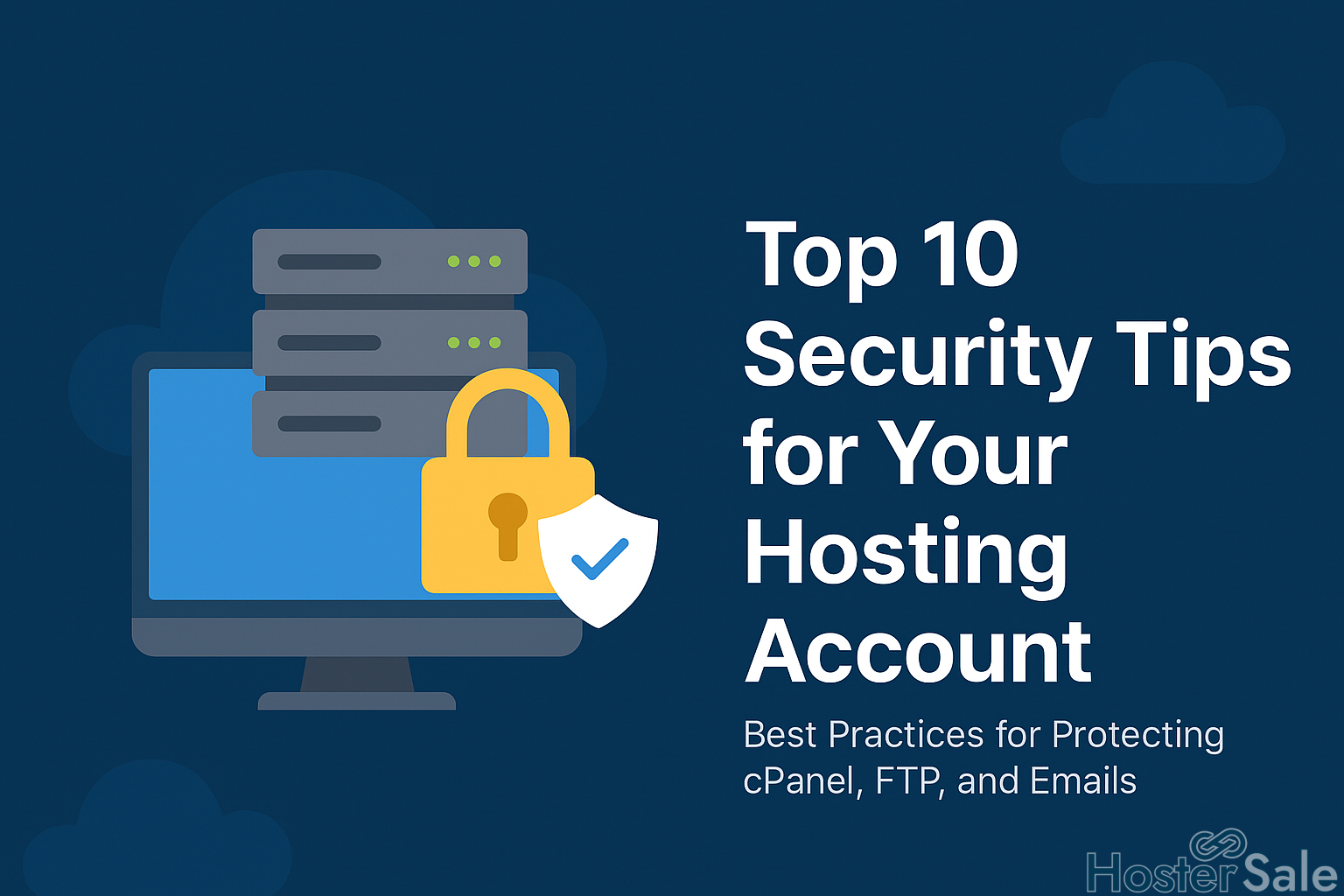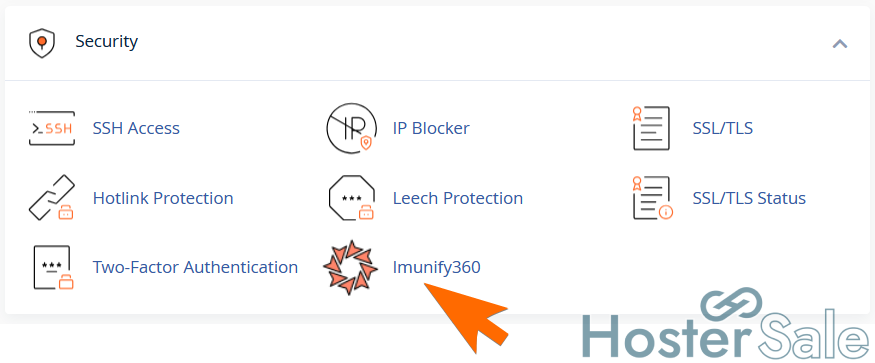
Your hosting account is the foundation of your website. If it’s not secure, everything from your content to your customer data is at risk.
At HosterSale, we take website security seriously. That’s why we’ve compiled the top 10 security tips to help protect your cPanel, FTP, and email accounts. Whether you’re a beginner or managing multiple websites, these steps will help keep your hosting environment safe from threats.
1. Use a Strong and Unique Password
Weak passwords are one of the most common ways hackers gain access to hosting accounts. A strong password should be at least 12 characters long and include uppercase and lowercase letters, numbers, and special characters.
Best Practice:
Avoid using the same password across multiple platforms. Use a password manager like Bitwarden or LastPass to generate and store strong, unique passwords.
2. Enable Two-Factor Authentication (2FA) in cPanel
Two-factor authentication adds an extra layer of protection. Even if someone guesses your password, they won’t be able to access your cPanel without the verification code sent to your phone.
How to enable it:
Go to cPanel > Security > Two-Factor Authentication, and follow the on-screen steps to activate it using an authenticator app.

3. Keep WordPress, Plugins, and Themes Updated
Outdated software is a major security risk. Hackers often exploit vulnerabilities in outdated plugins and themes.
What you can do:
- Always update to the latest version of WordPress.
- Use reliable themes and plugins with good reviews.
- Enable auto-updates where possible.
Recommended Read:
Effortless WordPress Migration: How to Seamlessly Transfer with All-In-One WP Migration
4. Use SFTP Instead of FTP
Regular FTP does not encrypt your data, making it vulnerable during file transfers. SFTP (Secure File Transfer Protocol) ensures that your data is encrypted and secure.
Steps to follow:
- Use an FTP client that supports SFTP (like FileZilla).
- Avoid enabling anonymous FTP.
- Remove unused FTP accounts regularly.
5. Check Login Logs and Access History
Monitoring login logs helps you detect any unusual activity before it becomes a threat. Frequent failed login attempts or access from unknown locations can indicate a potential attack.
Where to find it:
In cPanel, go to Metrics > Raw Access Logs or Visitors to monitor who is accessing your server.
6. Enable Web Application Firewall (WAF)
A Web Application Firewall protects your website from malicious traffic, DDoS attacks, and common threats like SQL injections.
At HosterSale, all hosting accounts include Imunify360, which automatically detects and blocks suspicious activity.

7. Secure Your Email Accounts
Email accounts are often the first target for spammers and phishing attacks. Take steps to secure them properly.
Email security tips:
- Use SSL/TLS for email ports
- Configure SPF, DKIM, and DMARC records
- Avoid using default passwords
- Don’t check emails over public Wi-Fi without a VPN
Related Article:
The Ultimate Guide to Web Hosting for Small Businesses: Tips, Tricks, and Best Practices
8. Take Daily Backups
Accidents, hacks, and server failures can happen anytime. Regular backups ensure you never lose your data.
At HosterSale, we include free daily backups using JetBackup. You can restore your files and databases with a few clicks.
Backup Tips:
- Enable automatic backups
- Keep a local copy if needed
- Test your backup restoration process regularly
9. Limit Access and Permissions
Giving full access to multiple people can be risky. Not every team member needs full cPanel access.
Access control checklist:
- Create separate FTP and email accounts
- Use restricted privileges where possible
- Remove inactive users immediately
- Never share your root or admin credentials
10. Choose a Secure Hosting Provider
Your hosting provider plays a major role in your overall security. A reliable host will offer built-in protection features and regular updates.
At HosterSale, we provide:
- Free SSL certificates
- Daily JetBackups
- Imunify360 malware protection
- CloudLinux for account isolation
- LiteSpeed Web Server for performance and security
- 24/7 technical support
Final Thoughts
Website security isn’t just an option — it’s a necessity. These 10 tips are simple but powerful ways to keep your hosting account secure.
By using strong passwords, enabling 2FA, updating your software, and choosing a security-focused host like HosterSale, you can dramatically reduce the risk of cyberattacks.
Recommended Articles
- How to Disable Directory Browsing in Minutes
- The Importance of Website Uptime: Why Your Website’s Success Depends on It
- Shared vs VPS vs Dedicated Hosting – Which One is Best?
Need Help?
Our expert team at HosterSale is always here to help you with hosting, security, or technical issues.


 PKR
PKR